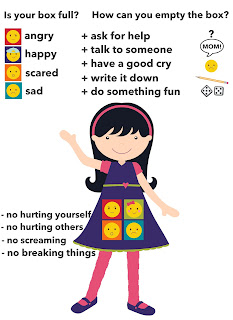Welcome to AuSumness.
I've got some pretty awesome information for you today. I'm giving a couple of tips that have helped this entire family tremendously. I have touched on it before, but there are a few modifications and considerations that were not in the previous entries.
Check out my chore charts I've designed for both of my boys. As you can see they are at totally different levels of capability due to their position on the spectrum with my oldest falling higher on the scale and my youngest, much lower even though they are only a year apart.
I know there are a lot of folks out there dealing with all of the gizmos of today. My hubby included! Hehehe...We have learned how to "use" their desire to play on these contraptions for all of our benefit. I found myself, in the beginning, being too easy on my boys when it came to chores. Then after further thought, knew no one would benefit by me not teaching them how to care for themselves, their pets and their surroundings.
Even though it is extremely difficult and sometimes we try chores that just don't work, we do keep expanding our duties list. Duties! Hehehe...We get grumbles. We get shouted at, but for this, we keep it black and white. If your chores are not finished, you do NOT play games. THE END. You cannot falter with this. Especially, in the beginning.
Allow me to explain how this might possibly work in your household, too. When a conversation is started about chores, it is highly possible that the child is not listening to begin with. There will more than likely be a barrage of complaining and excuses. Like a machine gun, for sure! Hehehe...
With a written list of what needs to be, there need be no discussion or even talking for that matter. In an earlier entry, I mentioned our usage of timers with the boys for playing games. (They get an hour.) When we first told them time was up, we'd get bombarded with swearing and attitude. When the alarm goes off...nothing. They finish up their level (that one took a while for them to figure out) and put their games in their proper place. THE END. We were totally stoked at this very easy solution.
Perhaps like your family member(s), ours don't really like being "told" what to do, but when it's written like my lists here, all I have to do is point or shoot a look in the direction where these hang in the living room.
You may want to experiment with what you put on the list. I totally recommend starting off WAY small and WAY easy to ease them into the concept. My kids would freak if there were more than two things on the list. So, we started with one and it was really easy. After a few months, you add and or change to more difficult chores depending on your child's capabilities.
Ya just have to give this one a try.
A couple more things I'd like to throw in here. Kids really shouldn't be playing games more than an hour a day for health reasons. A lot of reasons and deep down, we all really know that. I think one hour is not long at all, but I find one hour at a time ok. On weekends they get more time, but only ever one hour in one sitting. We really want them to understand that games are not healthy and are meant to be just fun. They need to know they don't "need" games, but may enjoy them when they've earned that game time.
Here's another VERY important tip for you. Keep all electronics out of the bedroom or at least make sure they are turned completely off. Phones and hand held gadgets should be taken out of the room one hour before bed time and there should be no devices one hour before bed time. It has to do with the release of serotonin (in the brain) and when the body is preparing to go to sleep. You may want to try this yourself. People sleep much better when there are no devices in the room.
I wanted to keep this short! Hehehe...So much for that, but it is just so, so important and I know many of you are dealing with the gizmos. Use them to all of your advantage.
Keep it black and white. The chores are ALL finished, then they may game. Not finished, no games. This leaves no room for arguing and less headaches. No games before 8 am. This way they stay in bed longer and get more sleep. No games or devices one hour before bedtime.
When you keep it simple and stick to your guns, there will be no war. Hehehe...
I designed this chart a while back and you can download it for free by clicking on the image.
If this is the first time you're visiting our blog, you may want to see this helpful chart as well. We've got a few free printables throughout the blog.
Come join our group on Facebook and let's all try to figure out how we can improve our lives and make autism AuSum.












